Are you struggling to find new business startup loans? Don’t worry; you’re not alone. Fifty-nine percent of business owners do not have their funding needs met, but we’ll show you how to improve your odds of getting startup business loans.
Startup companies can still get loans. Lee Smith, the owner of Urbanity, was six months out of college when he wrote a 75-page business loan and got a $250K loan. Today he’s making over $1.5 million selling clothes. That’s a great return on investment, and it shows how much the right plan and funding can help you succeed.
We’ve partnered with National Business Capital (NBC), the number one online site for getting small business loans approved. They’ve helped secure over $2 billion in business loans for over 25,000 small businesses like yours. That’s an average of $80,000 for business startups.
What Is a Startup Business Loan?
A startup business loan isn’t a specific type, but a catch-all for business loans you can get to start a business. Startup business loans are one of the hardest types of business loans to get. Since the company has not built a track record, the decision is made based on how well the lender can tell the business owner thought through the business plan.
Lee Smith, the owner of Urbanity told us:
Check out our interview with Lee below:
Why Is It Hard to Get a Startup Business Loan?
It’s hard to get a startup business loan because startup businesses often fail in the first five years. In those cases, a business startup loan might not be paid back, which causes lenders to be more cautious when lending to a startup business. Don’t worry! There are ways to improve your odds!
How Do Business Startup Loans Work?
A startup business loan will normally rely on the personal credit history because the business does not have the same financial records and credit length to evaluate whether the risk is worth taking. Because banks back the business owner, a business startup loan often requires a personal guarantee. You’ll want to make sure you have the following before you apply for business startup loans:
- Personal Credit Score
- Tax Returns
- Bank Statements
- Accounts Receivable
- Credit Card Sales
- Unpaid Invoices
- Business Plan
- Legal Documents
Keep reading for more about each one.
Personal Credit Score

You’ll want at least a 650 minimum personal credit score when applying for a business startup loan, but higher is better. A higher personal credit score improves your odds of approval and normally reduces the interest rate.
Tax Returns
You’ll need at least two years of personal and business tax returns for most lenders. National Business Credit does not normally require tax returns.
Bank Statements
You might need three months to three years of bank account statements depending on the lender. National Business Credit is typically three months.
Accounts Receivable
These help lenders establish how much money people owe your small business and can be used to help secure financing.
Credit Card Sales

This document is another proof of revenue. It also helps lenders calculate a commonly overlooked cost of doing business.
Unpaid Invoices
Unpaid invoices fall into two categories:
- Money owed to the company: Invoices that a customer has not paid yet could be used to secure startup loans.
- Invoices the company needs to pay: These invoices will negatively impact your loan because they reduce the amount you can pay towards the loan. Try to clear as many of these as possible before applying for a startup loan.
Business Plan
Be prepared with a business plan that shows lenders that you have considered how you will make your business thrive.
Legal Documents
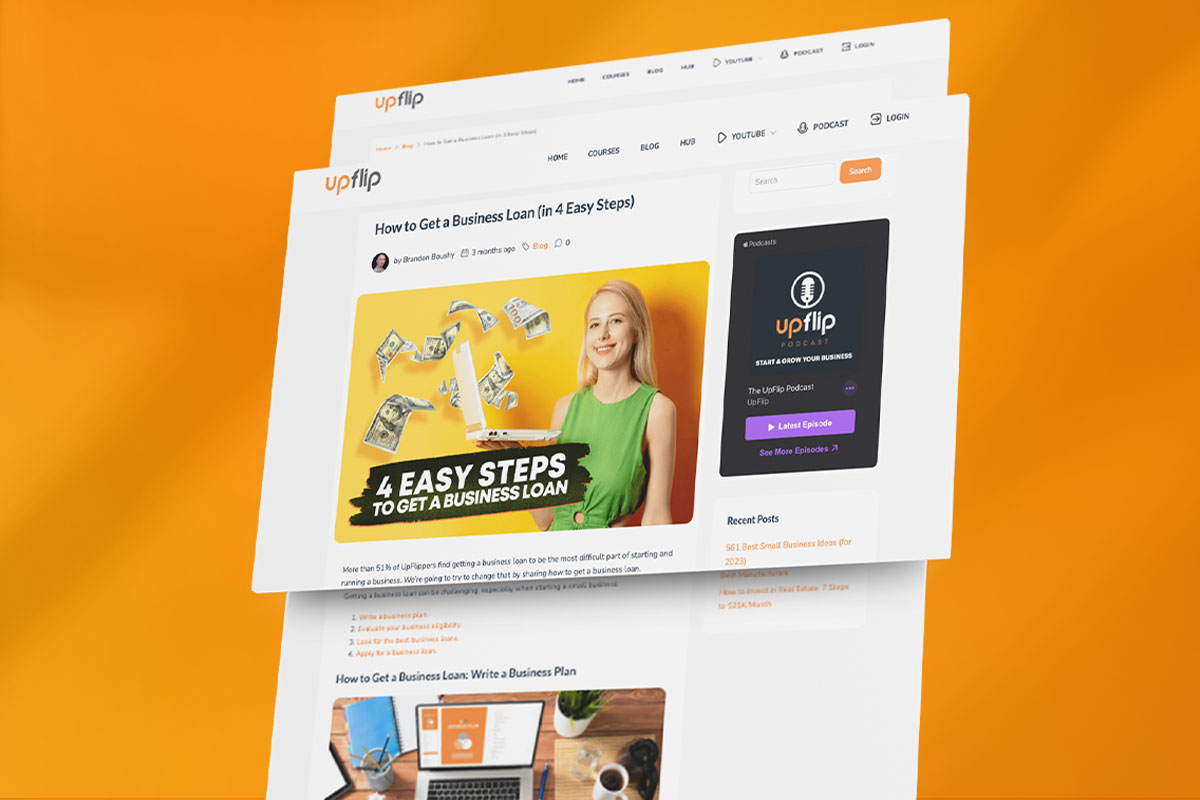
Remember to have copies of your business license, LLC or incorporation documents, EIN, and other documents that prove you are a legal business entity. Corporations are commonly viewed as more credit worthy because they have more reporting responsibilities that make it easier for companies like Dun & Bradstreet (D&B) to analyze your credit.
Check out our blog about how to get a business loan to learn more about D&B and other business credit-building tips.
What Are the Best Startup Small Business Loans?
The best small business startup loans are the ones you can actually get! Fortunately, National Business Credit has some loans that are really simple to get:
- Equipment Financing
- Asset-Based Lending
- Small Business Administration Microloans
- Personal Loans
- Franchise Loans
Let’s look at each.
Equipment Financing
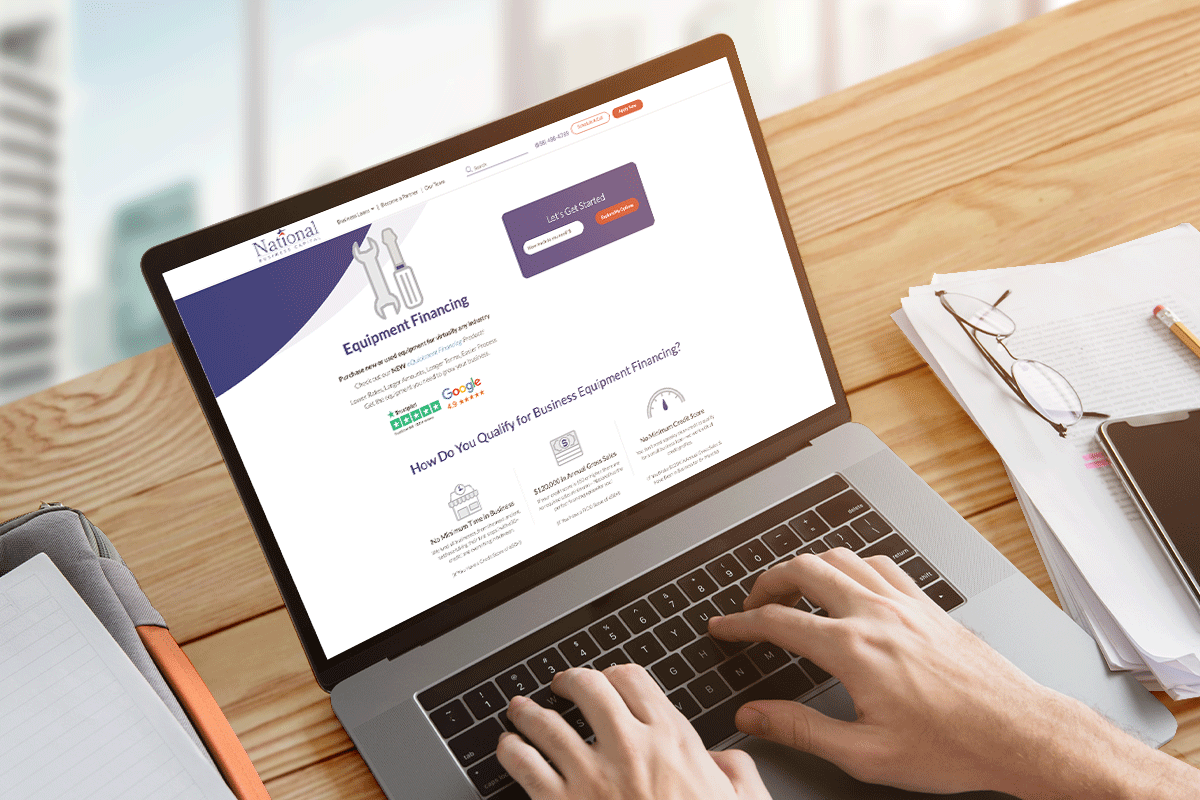
An equipment loan requires a 650 FICO score OR $120K in annual sales. The equipment secures the loan, so if you don’t pay the business loan, you won’t be able to operate. Find out more about NBC’s equipment loans.
Asset-Based Lending
If you have assets to bank your startup business loan, you can qualify for a business loan with three months of bank statements and a soft pull of your credit. People with higher credit scores and higher asset values are more likely to qualify for asset-backed startup loans.
Personal Loans
If you have stellar personal credit, you can qualify for a line of credit or a personal loan and use it for your startup business financing. Alternatively, you can refinance your mortgage and pull out equity for your startup business.
Franchise Loans
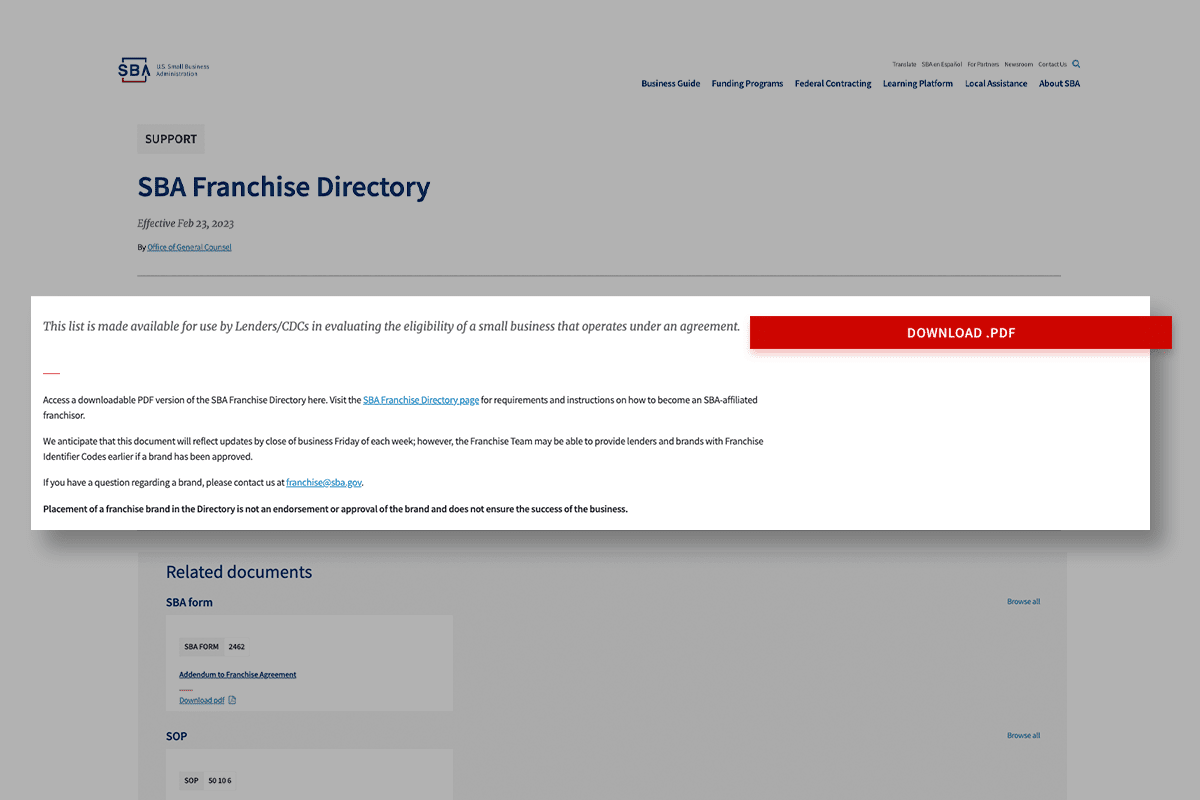
Franchises tend to have an easier time getting a startup business loan. If you’re considering a startup loan as a franchisee, check the SBA franchise registry to make sure the business is on the list of companies that get easier and faster approvals.
There are other business financing options that small business owners may come across, but the majority of business loans are not open to startup companies unless they have:
- 2 years in business
- $100,000 annual revenue
- 650 personal credit score (or 80 D&B score)
Small Business Administration Loans
The Small Business Administration is a government agency that helps small business owners succeed. They offer four main services:
- Business Guides: They have good overviews of how to plan, start, run, and grow businesses.
- Funding Programs: We’ll talk about these below.
- Federal Contracting Assistance: Federal contracting has a range of requirements that the SBA can help you meet.
- Local Assistance Centers: Every state is different so going to a Small Business Administration office can be beneficial for state-specific guidance.
Let’s look at the business loan options available from the SBA.
SBA Loans Startup Business

A new business can apply for an SBA loan or business line of credit. There are three categories of SBA loans:
- 7(a) Business Loan
- 504 Business Loan
- Microloans
Let’s look at each.
7(a) Business Loan
7(a) Loans are the SBA’s most common loan program if you are buying real estate because they back loans of up to $5 million that can be used for:
- Short- and long-term working capital
- Refinance current business debt
- Purchase furniture, fixtures, and supplies
- Real estate
Businesses have to meet the following qualifications to get small business loan:
- Must be profitable company
- Must be operating and based in the U.S.
- Owner must be invested in the company
- Exhausted all other resources
- Demonstrate the need for the loan
- No delinquencies to the U.S. Government
If you are buying an existing business or franchise, you may need to ask the existing business owner for the following:
- Current balance sheet
- Profit and loss statement
- Three years of tax returns
- Proposed bill of sale with full terms
- Asking price
- Schedule of inventory
- Machinery and equipment
- Furniture and fixtures
- Licensing agreements from franchise, Jobber, and other companies
- Proof of equity
- Additional SBA forms based on the scenario
Check out the SBA for more 7(a) information.
504 Business Loan
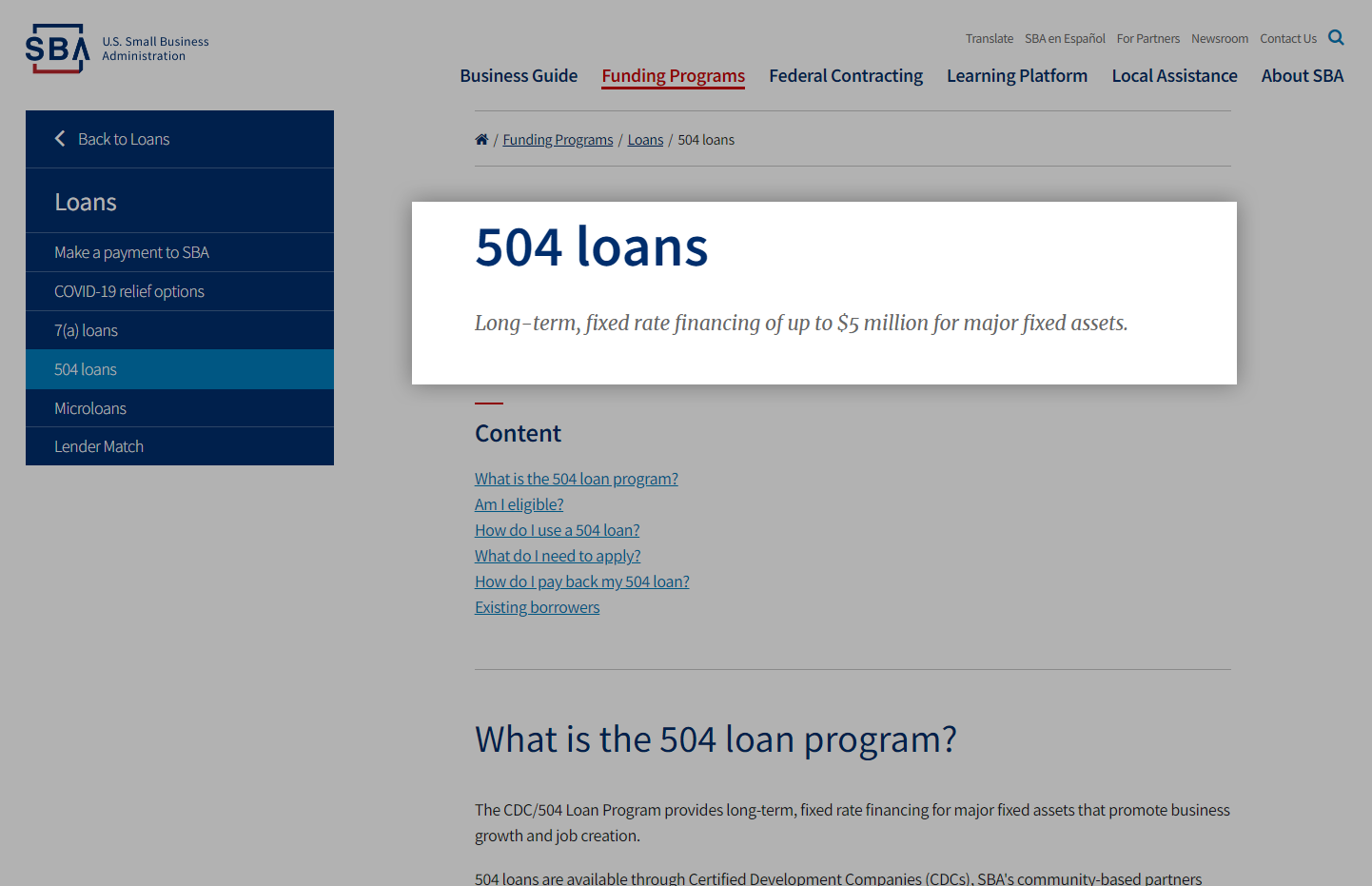
This SBA loan is for businesses to upgrade property through a Small Business Development Center as long as they have less than:
- $15.5 million in total 504 loans
- $15 million tangible net worth
- $5.5 million in current needs
- $5 million of net income based on the last two years tax returns
A 504 loan is meant to create both business and job growth through the construction or upgrading of:
- New buildings
- Existing buildings or land
- Long-term equipment and machinery
- Streets
- Parking lots
- Utilities
- Landscaping
You cannot use a 504 loan to increase working capital or inventory, restructure debt, or speculate on real estate. Learn more about 504 loans.
Microloans

These are the smallest type of startup loan you can get from the Small Business Administration. They are up to $50,000 and can be used for anything except buying real estate or restructuring debt. A microloan lasts for no more than six years and will normally have interest rates of 8% to 13%. Find a microloan lender.
How to Get Loans for Startup Business
Applying for startup business loans is simple. Just follow these seven steps:
- Build your credit score.
- Choose a loan type.
- Choose a lender.
- Prepare your documents.
- Update your business plan.
- Apply for a startup business loan.
- Build for growth.
Step 1. Build your credit score
As mentioned before, you’ll want a 650+ personal credit score or an 80 business credit score from D&B. If you don’t already have the necessary business and personal credit score, consider these options:
You can also use NAV to find ways to build your business credit score.
Step 2. Choose a loan type
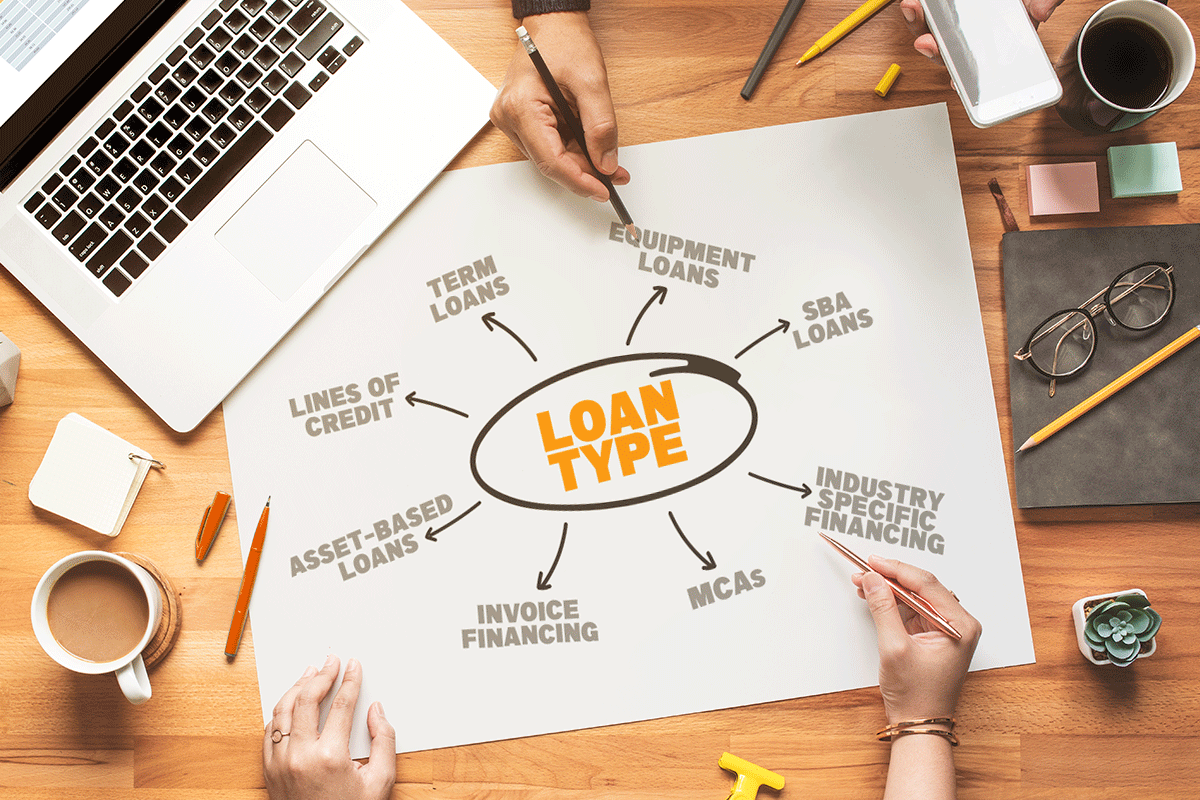
You’ll need to sort through and choose the type of startup loan you want to apply for if you go through a financial institution, but lenders like National Business Capital (NBC) will discuss the best startup loan options for you. NBC will help you get better startup financing because they work with 75 business lenders. That means you get the best business startup loans for your scenario. You can choose from:
- Term Loans
- Equipment Loans
- Lines of Credit
- Asset-Based Loans
- Invoice Financing
- Merchant Cash Advances (MCAs)
- SBA Loans
- Industry Specific Financing
Find out why more people go to online lenders for startup financing than traditional financial institutions.
Step 3. Choose a lender
In this step, you’ll look for a financial institution that will help with your startup financing. You can get a startup loan from:
- Local banks and credit unions
- Major banks
- Finance companies
- Online lenders
Let’s look at each of these.
Local Bank or Credit Union
If you have a bank account with a local lender like a credit union, they are more likely to approve you than larger banks or online lenders. Unfortunately, fewer small business owners apply for bank loans from smaller banks according to the FED Small Business Survey.
Major Banks
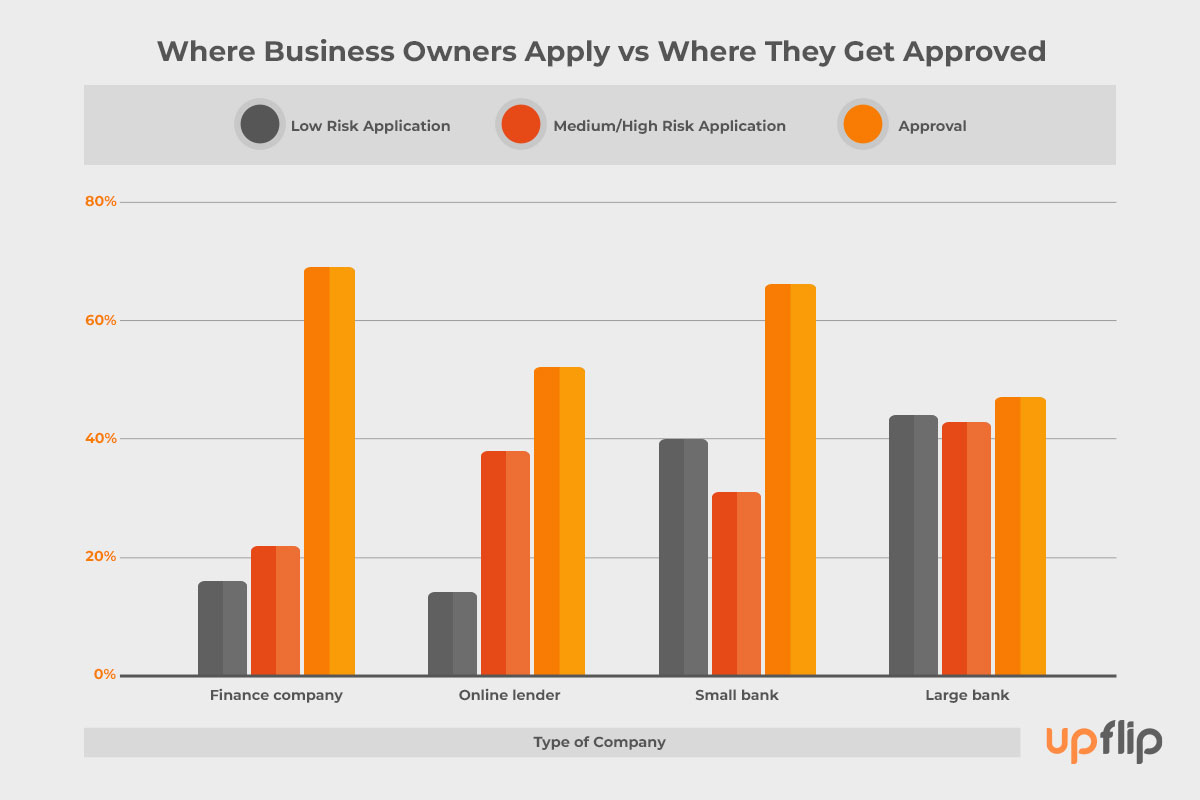
According to the Federal Reserve Small Business Survey, most business owners go to a traditional lender like Wells Fargo, Chase, or Bank of America when they apply for business loans, but they do not offer great odds of approval. You’re better off going to almost anyone else. The table below shows what percentage of business owners apply at each location and what the odds of approval are. Finance companies and small banks are the most under-utilized.
Finance Companies
These lenders focus on activities like equipment financing. They tend to be alternatives to a traditional business loan, but they have the best approval odds because the monthly payments are secured by something other than your word and credit history.
If you need credit, business lines from vendors can be a phenomenal way to start a business. The loan amount may not be as big, but there are benefits to running a lean startup. These may be online or in-store. Synchrony (formerly GE Finance) is a major player in this market, but you can also find plenty of other lenders on National Business Credit.
Online Lenders
Online lending tends to be more friendly to small business startup loans for bad credit. The loan amount might be lower than other business loans and the interest rate higher, but when you want funding for a business start up it makes sense to consider them. One of the nice things about National Business Credit is they bring together private lenders for business startup loans. This helps you get better credit offers and reduces the number of hits on your credit.
Step 4. Prepare your documents

Make sure you have all the documents you need to apply for a startup loan. If you don’t, they can hold up the processing time, which for many lenders can be three to nine months. Make sure to ask about the business loan application process before you get started. That way you are fully prepared with everything you need to apply for startup capital. We discussed what you’ll need in earlier sections of the blog.
Step 5. Update your business plan
If you haven’t already, you’ll want to update your business plan with the most up-to-date information. Better information helps you be more likely to receive a line of credit or business loan. Pay special attention to the financials and the explanations, especially on how you’ll use the business line of credit.
Step 6. Apply for a startup business loan
Once you have everything ready, it’s time to apply for your small business loans. Startup companies will often be denied credit from traditional financing options unless they have a good personal credit score, business credit, and offer a personal guarantee. Online lenders tend to be more generous as long as you have a 650 credit score and are using the loan amount for something that can secure the business.
What to consider before accepting startup loans for business
Before you accept startup loans for new business ventures, you’ll want to consider:
- Interest rates
- Lump sum loans vs business lines of credit
- Monthly payments
- Impact on working capital and cash flow
- Duration of startup loan
Let’s look at how each of these impact business success.
Payment Terms
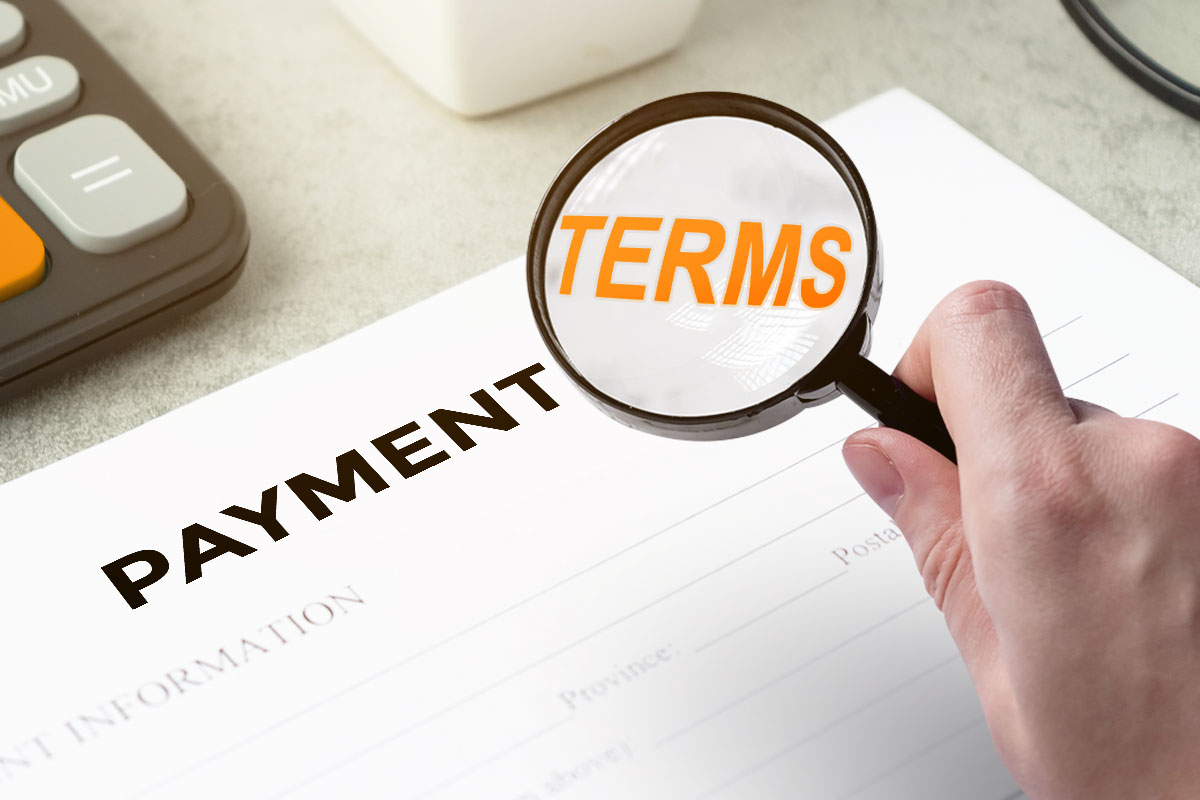
Before you accept startup business loans with no revenue, you’ll need a plan to pay them back. The payments will be a combination of interest payment and principal. Depending on the loan, you might have:
- Daily Payments: This arrangement is common with merchant cash advances.
- Weekly Payments: This is also common with merchant cash advances and invoice financing.
- Monthly Payments: As the most common type of payment arrangement, these are used by traditional bank loans, business credit cards, SBA loans, and business lines of credit.
- Paid Upon Triggering Event: Invoice financing often reroutes the invoice payments to the lender and then they pay you. When this occurs, the triggering event is the receipt of the invoice payment.
Make sure you can afford the payments otherwise you may default on the loan or lose your business. This is especially important if you have a period of time between when you accept the startup loan and when you receive revenue. If you keep part of the loan aside to pay the loan payments, you can protect against this risk.
Interest Rates
Your interest rates are effectively a business expense. Every time you pay interest, you have less money to reinvest in your business. We created a table of common startup loans to show you how much you’ll be spending on interest for different types of loans using the SBA data and calculator.net.
| Interest for Different Loan | ||||
| Type of Loan | Total Interest | Total Repaid | Monthly Payment | Interest per Year |
| 6 Year $50K Microloan 8% | $13,119.67 | $63,119.67 | $876.66 | $2,186.61 |
| 6 Year $50K Microloan 10% | $16,693.02 | $66,693.02 | $926.29 | $2,782.17 |
| 6 Year $50K Microloan 13% | $22,266.78 | $72,266.78 | $1,003.71 | $3,711.13 |
| 25 Year $250K Fixed Rate 9.52% | $406,315.50 | $656,315.50 | $2,187.72 | $16,252.62 |
| 10 Year $250K Fixed Rate 10.52% | $155,141.03 | $405,141.03 | $3,376.18 | $15,514.10 |
High rates are one of the main reasons that successful small business owners discourage taking out small startup business loans with bad credit.
Next, we’ll discuss why business lines of credit are some of the best small business loans you can get.
Term Loans vs Business Lines of Credit
Always choose a business line of credit over a term loan if you are offered it. Lines of credit are some of the best loans for startup business operations. Term loans pay you a lump sum upfront and you pay interest on the full amount. A line of credit is similar to how a business credit card works; it charges you interest on the amount of credit you use.
Let’s look at how that can impact your payment using the 25-year loan from the example above. Pretend you only need $25K in the first month. Instead of paying $2,187.72, you’d pay 9.52% interest on $25,000 making it where your payment is only $218.77. You just saved $1,968.95.
As you pay the line of credit off, your available credit goes back up. This doesn’t happen with a traditional loan.
Impact on Working Capital and Cash Flow
A startup loan will impact your working capital and cash flow. Let’s look at a few definitions:
Working Capital = Current Assets (convert to cash in less than a year) minus Current Liabilities (must be paid within a year)
Cash Flow = Money In minus Money Out
Here’s how a loan impacts your capital and cash flow:
- The loan will initially provide working capital and cash flow to help with startup costs.
- Payments on the loan will reduce working capital and cash flow.
- Depending on how well you convert the investments into revenue, the working capital and cash flow may increase or decrease as you earn revenue and make the loan payments.
Duration of Startup Loan
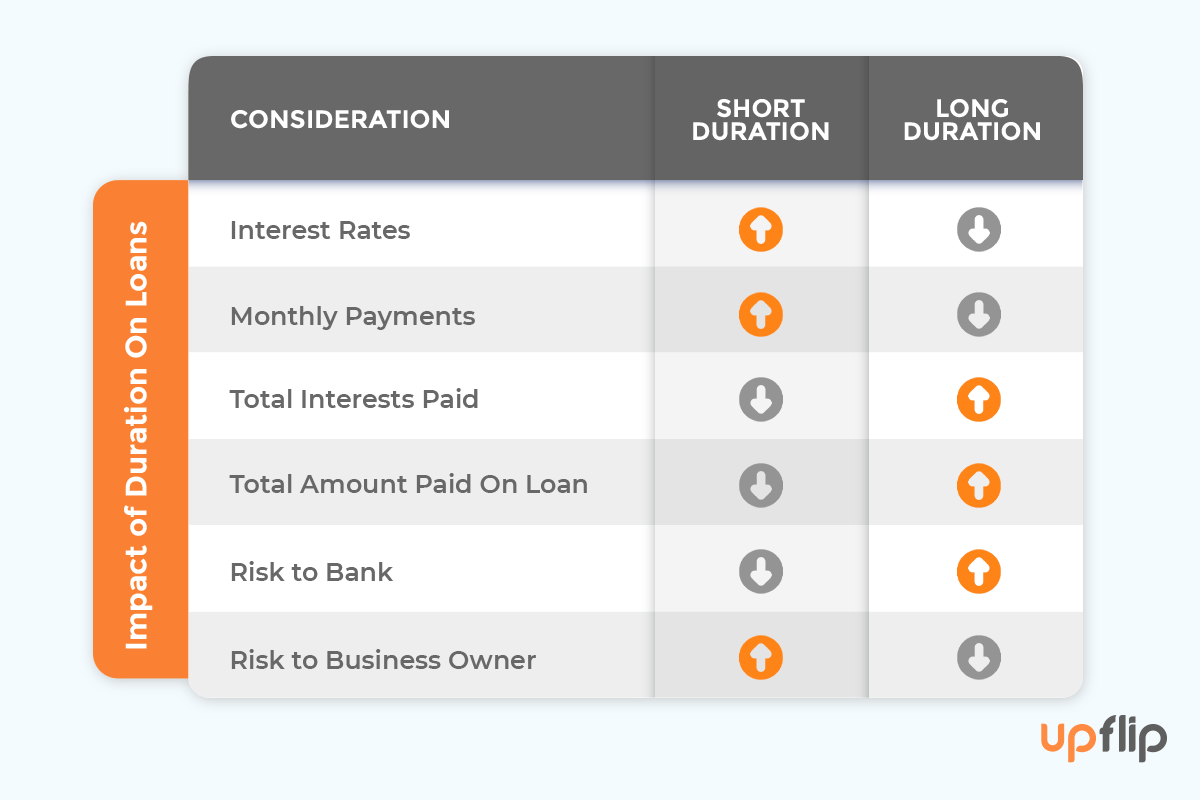
The duration of the loan will impact the payments and interest rates. Assuming the loan amount stays the same, you’ll see the following impacts on other aspects of the loans for startup business operations.
Step 7. Build for growth
Once you get approved for a startup loan, it’s time to put your business in hyperdrive. Use the loan for the purposes you stated in the startup loan application. If you received an SBA loan, make sure you aren’t using it for items that are specifically excluded from your terms. Lee told us:
Next, let’s look at some alternatives to loans for startup businesses.
Alternatives to New Business Startup Loans
Creativity offers a ton of ways to start a business without applying for a startup loan. Consider some of these alternatives to a startup business loan:
- Credit Cards
- Small Business Grants
- Friends and Family
- Crowdfunding
- Equity
We’ll look at each of these below to help you with more ideas to get business funding.
Business Credit Cards
You can use business credit cards instead of a startup business loan. It’s easier to qualify for these forms of credit, but they most likely won’t cover more expensive costs like buying equipment or property. In addition, business credit cards tend to have higher interest rates than startup business loans. That means lower profits.
Small Business Grants

Startup grants are by far the best way to get money for your small business if you can get them. The Small Business Administration has grants for:
- States to Help with Exporting: Learn more about the SBA exporting grants. Apply with your state to get exporting assistance.
- Research and Development: Grants for developing scientific or military applications are available from the Small Business Innovation Research (SBIR) and Small Business technology Transfer programs.
- Management and Technical Assistance: If you want to provide managerial or technical guidance to small businesses, there are grants for you too. It’s called the 7(j) program.
Check out other SBA grants.
Friends and Family
Friends and family can help you become a small business owner. They can either give you money or offer you a startup business loan. You’ll need to find a provider that offers loan servicing for individuals, but it can be done.
I financed my home through a friends and family loan that was managed by WestStar to get a lower interest rate than was available on the open market. You may want to ask if they service business loans that way too.
Crowdfunding
Business owners can also get startup funds through crowdfunding. When you use this method to start a new business, you may be committing to deliver a product in exchange for help covering business expenses. Learn how Pooch Selfie approached crowdfunding below:
Equity
Selling equity requires incorporation, but business owners can raise far more money through selling equity. This method of fundraising involves selling stock, which means the business has multiple small business owners and each is entitled to part ownership. You’ll want to hire a business lawyer to help you draft the incorporation documents if you plan on taking this approach.
Build Your Business
It’s not always easy to get loans for startup business operations, but if you can acquire one, it can help you accelerate your business growth. Just make sure you have a solid plan for how you’ll use it or you may find yourself in a worse spot than when you started.
What kind of business loans have you used?
Equipment Financing
Asset-Based Lending
SBA Microloans
Personal Loans
Credit Cards
Other: Specify




